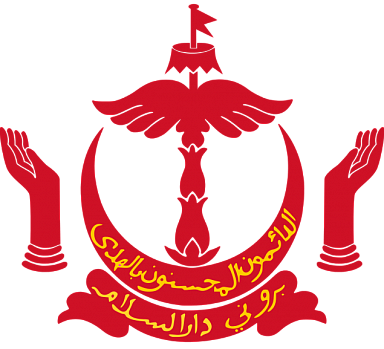 Brunei Darussalam
Brunei Darussalam
Joint Statement at the Intersessional Meeting of the Commission on Narcotic Drugs, Vienna, 23-25 October 2023
On behalf:
People’s Democratic Republic of Algeria, Republic of Angola, Republic of Azerbaijan, Kingdom of Bahrain, People’s Republic of Bangladesh, Republic of Belarus, Negara Brunei Darussalam, Burkina Faso, Central African Republic, People’s Republic of China, Republic of Cuba, Democratic People’s Republic of Korea, Arab Republic of Egypt, Republic of Fiji, Republic of India, Republic of Indonesia, Islamic Republic of Iran, Republic of Iraq, Hashemite Kingdom of Jordan, Republic of Kazakhstan, Republic of Kenya, State of Kuwait, Kyrgyz Republic, Lao People’s Democratic Republic, Republic of the Union of Myanmar, Republic of Namibia, Republic of Nicaragua, Federal Republic of Nigeria, Sultanate of Oman, Islamic Republic of Pakistan, State of Palestine, Russian Federation, Kingdom of Saudi Arabia, Republic of Singapore, Democratic Socialist Republic of Sri Lanka, Republic of the Sudan, Syrian Arab Republic, Republic of Tajikistan, United Republic of Tanzania, Republic of Türkiye, United Arab Emirates, Republic of Uzbekistan, Socialist Republic of Viet Nam, Republic of Zimbabwe
We acknowledge the progress made in the implementation of the international drug policy commitments due to the enhanced efforts of the national competent authorities in addressing and countering the world drug problem as well as the broad technical assistance provided by the United Nations Office on Drugs and Crime. We reaffirm the main role of Member States in developing an effective and comprehensive approach to addressing and countering the world drug problem. We further reaffirm the principal role of the Commission on Narcotic Drugs as the policy-making body of the United Nations with prime responsibility for drug control matters and fully support its work within its mandate, without diverting its attention from the core tasks.
We underscore that the Single Convention on Narcotic Drugs of 1961 as amended by the 1972 Protocol, the Convention on Psychotropic Substances of 1971 and the United Nations Convention against Illicit Traffic in Narcotic Drugs and Psychotropic Substances of 1988 constitute the cornerstone of the international drug control system.
We strongly urge all Member States to comply with the provisions and ensure the full and effective implementation of these conventions. We appreciate the treaty-mandated work of the International Narcotics Control Board. We encourage the Board as an independent treaty-mandated body to monitor in close consultation and cooperation with States Parties, their compliance with the drug control conventions. We call on the Board to continue to safeguard the integrity of the international drug control system and to assist Governments in effectively addressing and countering the increasingly complex, persistent and emerging challenges related to the global drug control.
We underscore that the current developments related to the world drug problem are alarming and represent a global drug crisis. Meanwhile, the adoption of legislation in support of non-scientific and non-medical or “recreational” use of drugs in some countries leads to misperceptions about the perceived risk of the consequences of illicit drug use. The range of illegal drugs and illicit drug markets are expanding and diversifying, compounded by the increase in both global supply and demand. Such worrisome trends are witnessed both with regard to plant-based and synthetic drugs. The persistence of the drug problem, and the emergence of new and ever-evolving drug-related challenges, show that the severity of the world drug problem must not be downplayed to merely a “situation”. We believe that strong political will and unwavering commitment of all Member States to strengthen their domestic efforts and increase international cooperation along with concrete measures are required to counter the serious threat posed by the world drug problem.
We are deeply concerned about legalization of cannabis for non-medical purposes. We fully share the assessments of INCB that the growing trend to allow the use of cannabis for non-medical and non-scientific purposes contravenes the 1961 Single Convention and constitutes a significant challenge for the international community, the States Parties to the drug control conventions and for the implementation of these conventions. We would like to reiterate that the principle of pacta sunt servanda is applicable in the field of drug control treaties.
We emphasize the detrimental effects of the legalization of cannabis on public health, safety as well as the decreasing perception of risks related to drug abuse in society, particularly among children and youth, and call upon the UNODC and INCB to continue data collection and analysis of harms posed by the legalization of non-medical use of cannabis. We also underline that legalization of drugs for non-medical purposes poses a threat to the promotion and protection of human rights, especially the right to life, the right of everyone to the enjoyment of the highest attainable standard of physical and mental health and, as Article 33 of the Convention on the Rights of the Child provides for, the right of the child to be protected from the illicit use of narcotic drugs and psychotropic substances.
We emphasize the importance of adequate, sustainable and predictable funding for UNODC in order for the Office to enhance the provision, within its mandate, of technical assistance, capacity building, and especially needed equipment and related technology to developing countries, with full respect for the sovereignty and territorial integrity of States as well as the principle of non-intervention in the internal affairs of States, upon their request and in accordance with their needs, and to facilitate equal access to such assistance.
We further emphasize that all Member States should benefit from research activities of the Office, which should respect sovereign drug control policies, legislation and the unique circumstances of Member States, and that the thematic focus of the World Drug Report should represent a broad consensus.
We also emphasize that strengthening of cross-border law enforcement cooperation is essential in our joint endeavour. We recognize the fundamental role of effective international cooperation in preventing and combating drug-related crime and to this end underline the importance of addressing, tackling and effectively responding to international challenges and barriers, in particular measures, that hinder such cooperation, and which are not consistent with the Charter of the United Nations and obligations under international law, and in this regard urge States, consistent with their international obligations, to refrain from applying such measures.
We underscore that Article 3 of the 1988 Convention provides that drug-related offences shall be prosecuted and punished in conformity with domestic law. Moreover, Article 24 of this Convention prescribes that Parties may adopt more strict or severe measures than those provided by this Convention if, in their opinion, such measures are desirable or necessary for the prevention or suppression of illicit traffic in narcotic drugs and psychotropic substances.
We urge all Member States to set ambitious goals and not to limit their efforts to reducing harms related to drug abuse, illicit drug cultivation, production, manufacture and trafficking. We call for concerted international action aimed at addressing the root causes of the world drug problem. We are convinced that harm prevention is an important element in the drug-related efforts of Member States.
We reaffirm our determination to counter the world drug problem and to actively promote a society free of drug abuse in order to ensure that all people can live in security, peace, health, dignity and prosperity.
We call on all Member States to work constructively and in good faith towards adopting a concise, action-oriented document at the opening of the high-level segment of the 67th session of the Commission on Narcotic Drugs within the framework of 2024 mid-term review and reaffirm our commitment to accelerated implementation of all existing international drug policy commitments beyond 2024.










